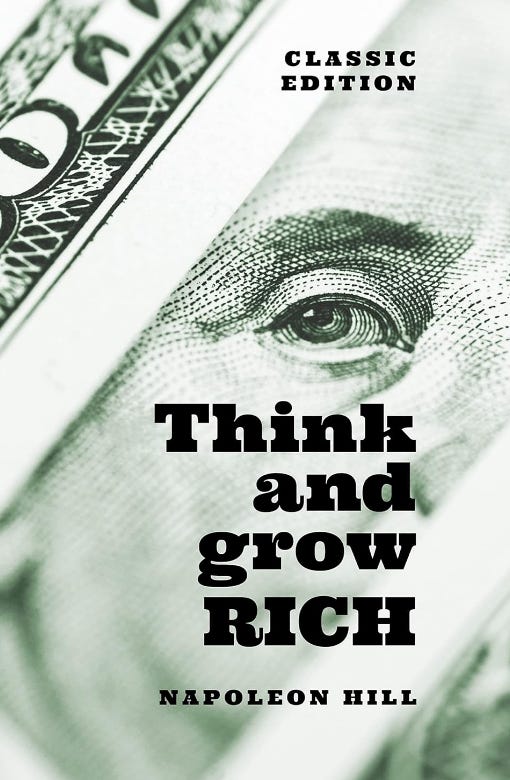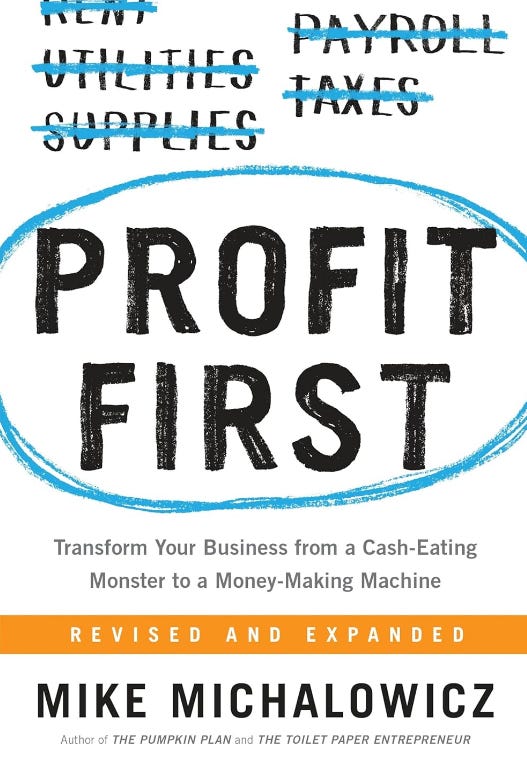Do books still have a place in the entrepreneurial journey?
With the proliferation of AI, podcasts, YouTube, and other forms of information, it can feel like books (paper and audio) are on their way out. Why would I read an entire book when I can generate an AI summary and have chatGPT read it out loud while driving?
Here's my take: books take time to consume. That time allows your mind to process, turn thoughts over, and observe related factoids between reading sessions. In essence, I think the "cadence" of reading can dramatically increase the impact of the knowledge.
With this in mind, and since I get asked frequently by new entrepreneurs where to start in their reading journey, I decided to generate a list of 10 business books for new entrepreneurs, listed in a suggested reading order. We start with mindset, then move to entrepreneurial principles and structure, and then end with next-level topics around finance and delegation.
Here we go, the top 10 books for aspiring entrepreneurs:
1. Think and Grow Rich
Napoleon Hill (1937) – 238 pages (Amazon)
I was 16 years old when a high school economics teacher recommended this book. My life changed in that moment. In this book, Hill distills the success principles of wealthy individuals into actionable steps, emphasizing the power of desire, faith, and persistence. It's a motivational guide that underscores the psychological aspects of achieving success.
2. Rich Dad Poor Dad
Robert T. Kiyosaki (1997) – 336 pages (Amazon)
I was 20 years old when a college professor recommended this book. My life changed again! (See a pattern. Teachers matter!) In this classic, Kiyosaki contrasts the financial philosophies of his two "dads" to highlight the importance of financial education, investing, and entrepreneurship. This book challenges conventional beliefs about money and is essential for shifting one's mindset toward wealth-building.
3. The Millionaire Next Door
Thomas J. Stanley and William D. Danko (1996) – 272 pages (Amazon)
This book surprised me. Based on extensive research, this book reveals that many millionaires live modestly and prioritize savings and investments. It reinforces the idea that wealth is often the result of disciplined financial habits rather than high income.
4. The E-Myth Revisited
Michael E. Gerber (1995) – 268 pages (Amazon)
Okay, now we move from mindset to entrepreneurship. Gerber addresses common misconceptions about starting and running a small business, advocating for systems and processes to ensure scalability and sustainability. It's crucial for entrepreneurs aiming to build businesses that can operate independently.
5. Atomic Habits
James Clear (2018) – 320 pages (Amazon)
So now that you understand how a well-run business might look, let's dive into a bit of the how. James Clear is amazing. In this book, he provides a comprehensive framework for habit formation, demonstrating how small changes can lead to significant improvements. This book is vital for developing the personal discipline necessary for entrepreneurial success.
6. Traction: Get a Grip on Your Business
Gino Wickman (2007) – 246 pages (Amazon)
Do not run a business without implementing Traction. Don't do it. Trust me. In this seminal book, Wickman introduces the Entrepreneurial Operating System (EOS), a set of tools and concepts designed to help business leaders gain control and clarity. It's essential for entrepreneurs seeking to streamline operations and drive growth.
7. Profit First
Mike Michalowicz (2014) – 224 pages (Amazon)
Michalowicz was introduced to me by an EO member before I was even in EO. I still remember my friend Joe mentioning it to me in the parking lot of our gym. In this book, Michalowicz proposes a cash management system that prioritizes profit, challenging traditional accounting methods. It's a practical guide for ensuring financial health and sustainability in business operations.
8. Built to Sell
John Warrillow (2011) – 176 pages (Amazon)
Through a compelling narrative, Warrillow illustrates how to structure a business to be sellable, emphasizing the importance of specialization and process. This book is key for entrepreneurs who aim to create valuable, transferable businesses.
9. Simple Numbers
Greg Crabtree (2011) – 200 pages (Amazon)
Crabtree is the rare accountant who speaks in "business-owner terms." His book is helpful, thorough, and, most importantly, actionable. Once you finish this, make sure to read the sequel, Simple Numbers 2.0. It dives even further into the topics covered in the first book.
10. Who Not How
Dan Sullivan with Dr. Benjamin Hardy (2020) – 208 pages (Amazon)
This book shifts the focus from personal limitations to collaborative potential, encouraging entrepreneurs to seek out the right people to achieve their goals. It's instrumental in fostering a mindset geared toward delegation and teamwork.
Plow through these books and need a few more with which to go deeper? Email me at scott@scottmonday.com. I'd love to riff with you about this!
Thanks for reading this post. I appreciate you. In return, please share this with those you know who may be interested.
Things I’ve Enjoyed Lately: The Artificial Intelligence Show is a favorite podcast of late. AI is a game changer in many sectors, and hearing their thorough analysis of AI trends and developments in a clean 60-90 minute weekly podcast is exceptionally helpful. So many cool things are happening in AI, and it is intriguing to learn the who, what, and why behind them. Check it out!













